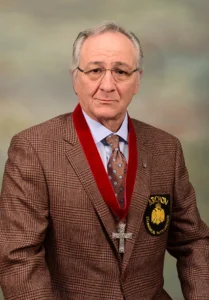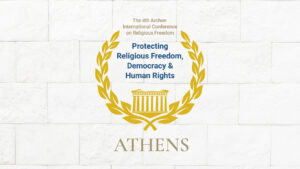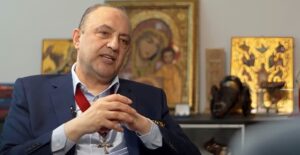| Briefing: The Greek Orthodox Church in Turkey: A Victim of Systematic Expropriation | |
| March 16, 2005 | return |
|
Hon. Christopher H. Smith Co-Chairman Helsinki Commission
We are here today in order to review the efforts of the Government of Turkey to undermine the existence of the Greek Orthodox Church in Turkey, and to discuss Turkey’s obligations under international human rights law, the Turkish Constitution, and the Turkish national law.
The Lausanne Treaty of 1923 does much to protect the rights of the non-Muslim religions in Turkey, but discriminatory treatment continues to hinder the religious freedoms of Turkey’s Orthodox minorities.
The State Department of the United States, as well as the European Commission has recently criticized Turkey’s treatment of religious minorities, focusing primarily on the legal status of the Ecumenical Patriarchate, the obstacles to religious foundations’ ownership and repair of property, the closure of Halki Seminary, and the citizenship of bishops elected to the synod.
Today we will look at The Orthodox Christian Minority’s lack of legal personality, their restricted property rights, and the interference in the management of foundations.
Turkish Authorities have not recognized the Ecumenical Patriarchate as a legal entity. As a result, the amount of Patriarchate owned properties have shrunk from 8000 in 1936, and to 1700 at present; with only 600 of these being legally recognized by the General Authority Foundation. Church Community properties, in the form of Parishes, Sanctifications, Monasteries, and Shrines ought to be safeguarded, and registered under the Ecumenical Patriarchate.
The Greek Orthodox minority population has shrunk due to the breaking up of the minority community by the Turkish Minority Authority. As a result, the Authorities have claimed the right to confiscate any foundation that is lacking members or administration. Until the present day the Greek Orthodox Minority does not have any, legally bound, central representation, though it is presented as a representative of the Minority at all times.
There is a real need in Turkey today, if the presence of these institutions and the continuation of their existence is still desired, then Turkey must adhere to the Treaty of Lausanne and protect the ecclesiastical traditions. Or else the Ecumenical Patriarchate will be unable to elect a Patriarch and continue its right of operations.
Currently, the Greek Orthodox Minority relies heavily upon foreign clergy to make up for the lack of manpower of clerics for the manning of various sections of the Patriarchate. Permanent work and residence permits must be given to clerics who are invited. Otherwise they will be welcomed only as tourists and must leave the country every three months.
It is imperative to settle the issues of minority education. Schools that have been kept open by the Ministry of Education need to be available for use for other non-educational purposes. These are empty school buildings that lack students and have suspended their functions.
The concern of this Commission — the focus of today’s breifing – is the protection of religious rights and freedoms. Turkey’s treatment of the Ecumenical Patriarchate violates its obligations under international human rights law. As a party of several international human rights treaties, a member state of the Council of Europe, and a participating state in the Organization for Security and Cooperation in Europe, Turkey has taken on binding obligations to protect the rights of religious minorities and to prevent discrimination on the basis of origin, religion, or ethnicity. Turkey violates these obligations with its law and practice restricting the activities of the Ecumenical Patriarchate.
|
|







